KIDNEY STONE SYMPTOMS AND CAUSES
Kidney stone disease , also known as
urolithiasis , is when a solid piece of material (kidney stone) occurs in the urinary tract . Kidney stones typically form in the kidney and leave the body in the urine stream. A small stone may pass without causing symptoms. If a stone grows to more than 5 millimeters (0.2 in) it can cause blockage of the ureter resulting in severe pain in the lower back or abdomen. A stone may also result in blood in the urine, vomiting, or painful urination .
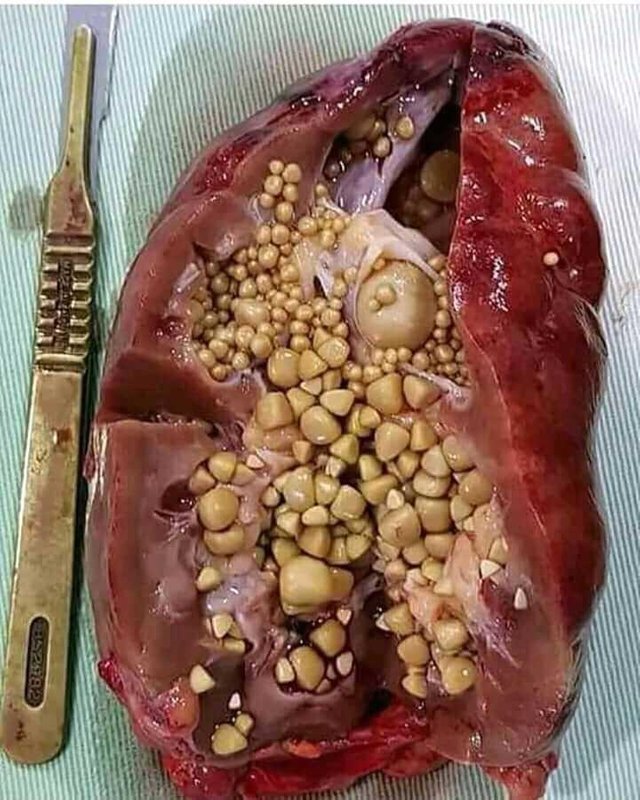
Most stones form due to a combination of
genetics and environmental factors. [2] Risk factors include high urine calcium levels ,
obesity , certain foods, some medications,
calcium supplements , hyperparathyroidism, gout and not drinking enough fluids. [2][8] Stones form in the kidney when minerals in urine are at high concentration. [2] The diagnosis is usually based on symptoms, urine testing, and medical imaging.
Who is at risk for kidney stones?
Anyone may develop a kidney stone, but people with certain diseases and conditions (see below) or those who are taking certain medications are more susceptible to their development. Urinary tract stones are more common in men than in women. Most urinary stones develop in people 20 to 49 years of age, and those who are prone to multiple attacks of kidney stones usually develop their first stones during the second or third decade of life. People who have already had more than one kidney stone are prone to developing further stones.
A family history of kidney stones is also a risk factor for developing kidney stones. Kidney stones are more common in Asians and Caucasians than in Native Americans, Africans, or African Americans.
A small number of pregnant women develop kidney stones, and there is some evidence that
pregnancy -related changes may increase the risk of stone formation.
CAUSES OF KIDNEY STONE
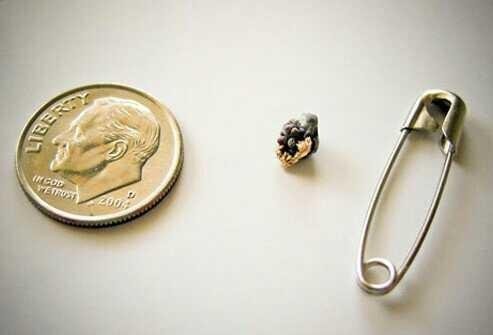
Kidney stones often have no definite, single cause, although several factors may increase your risk.
Kidney stones form when your urine contains more crystal-forming substances — such as calcium, oxalate and uric acid — than the fluid in your urine can dilute. At the same time, your urine may lack substances that prevent crystals from sticking together, creating an ideal environment for kidney stones to form.
Certain diets. Eating a diet that's high in protein, sodium (salt) and sugar may increase your risk of some types of kidney stones. This is especially true with a high-sodium diet. Too much salt in your diet increases the amount of calcium your kidneys must filter and significantly increases your risk of kidney stones.
Hypercalciuria (high calcium in the urine), another inherited condition, causes stones in more than half of cases. In this condition, too much calcium is absorbed from food and excreted into the urine, where it may form calcium phosphate or calcium oxalate kidney stones.
Other conditions associated with an increased risk of kidney stones include hyperparathyroidism, kidney diseases such as renal tubular acidosis, and other inherited metabolic conditions, including cystinuria and hyperoxaluria.
Certain diets. Eating a diet that's high in protein, sodium (salt) and sugar may increase your risk of some types of kidney stones. This is especially true with a high-sodium diet. Too much salt in your diet increases the amount of calcium your kidneys must filter and significantly increases your risk of kidney stones.
Chronic diseases such as diabetes and high blood pressure ( hypertension ) are also associated with an increased risk of developing kidney stones.
Gout results in chronically increased amount of uric acid in the blood and urine and can lead to the formation of uric acid kidney stones.
Dehydration. Not drinking enough water each day can increase your risk of kidney stones. People who live in warm climates and those who sweat a lot may be at higher risk than others.
Digestive diseases and surgery. Gastric bypass surgery, inflammatory bowel disease or chronic diarrhea can cause changes in the digestive process that affect your absorption of calcium and water, increasing the levels of stone-forming substances in your urine.
SYMPTOMS OF KIDNEY STONE
A kidney stone may not cause symptoms until it moves around within your kidney or passes into your ureter — the tube connecting the kidney and bladder. At that point, you may experience these signs and symptoms
Severe pain in the side and back, below the ribs
Pain that radiates to the lower abdomen and groin
Pain that comes in waves and fluctuates in intensity
Pain on urination
Pink, red or brown urine
Cloudy or foul-smelling urine
Nausea and vomiting
Persistent need to urinate
Urinating more often than usual
Fever and chills if an infection is present
Make an appointment with your doctor if you have any of this signs and symptoms
Urinating small amounts
PREVENTION OF KIDNEY STONE
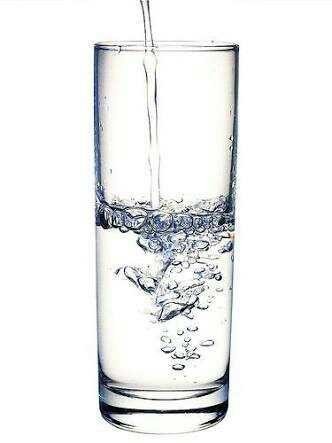
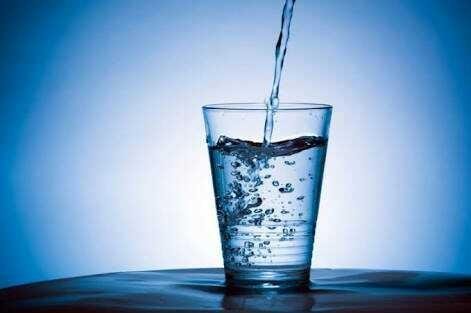
The best way to avoid kidney stones is to prevent the most common cause – dehydration. You are adequately hydrated when your urine is clear. Most people require between 8 to 10 glasses of water per day. Avoid grapefruit juice which is linked to the development of kidney stones.
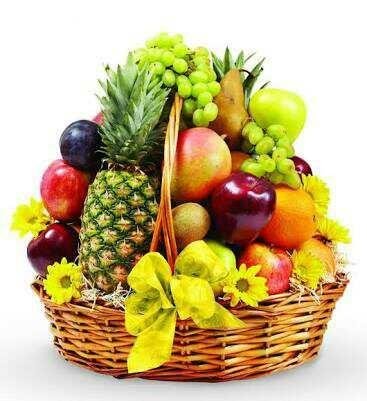
Diet is a factor in some cases of kidney stones. A dietician can recommend foods to reduce the risk of kidney stones. Higher than recommended amounts of vitamin D , vitamin C, salt, protein, and foods containing high oxalates (dark green vegetables) may increase the risk of stone formation. Eating a low-protein, low-sodium diet with adequate calcium decreases the chance of developing stones.
GENERAL HEALTH TIPS TO HAVE A GOOD KIDNEY
Avoid contact with all the toxic and harmful items listed at the beginning of this article.
Eat lots of fresh fruit and vegetables (particularly the latter) together with grass fed beef and free range chicken and eggs.
Stay away from sugars, sodas and artificial sweeteners, processed salty foods and the bad trans fats. Instead, change to natural salt and good fats such as butter from raw cream, olive oil and organic coconut oil. Stevia is a safe replacement for sugar.
Try to drink only water instead of other drinks. This should be pure filtered water – several glasses per day.
Maintain a healthy weight and, of course, this will be more easily achieved through the other lifestyle changes that you make.
Stay fit by at least 30 minutes of physical activity that increases your heart rate on five or more days of the week – suggestions include: walking, lawn mowing, cycling, swimming or gentle aerobics.
Don’t smoke and limit your alcohol to a maximum of two small drinks per day if you are male or one small drink per day if you are female.
Have your blood pressure checked regularly. If you blood pressure levels are higher than they should be, lower them with natural remedies rather than statins which can actually lead to kidney damage.
Do things that help you relax and reduce your stress levels.
Spirulina (from a safe source) helps to protect your kidneys. As kidneys are one of the first organs to suffer damage after significant radiation exposure, Spirulina is used – but research also suggests that spirulina helps protect from the nephrotoxicity of cancer treatments, antibiotics and analgesics.
Good information. In my almost 30 years of being a butcher, I have never come across a kidney stone.
Thanks
Congratulations! This post has been upvoted from the communal account, @minnowsupport, by wokejijasper from the Minnow Support Project. It's a witness project run by aggroed, ausbitbank, teamsteem, theprophet0, someguy123, neoxian, followbtcnews, and netuoso. The goal is to help Steemit grow by supporting Minnows. Please find us at the Peace, Abundance, and Liberty Network (PALnet) Discord Channel. It's a completely public and open space to all members of the Steemit community who voluntarily choose to be there.
If you would like to delegate to the Minnow Support Project you can do so by clicking on the following links: 50SP, 100SP, 250SP, 500SP, 1000SP, 5000SP.
Be sure to leave at least 50SP undelegated on your account.